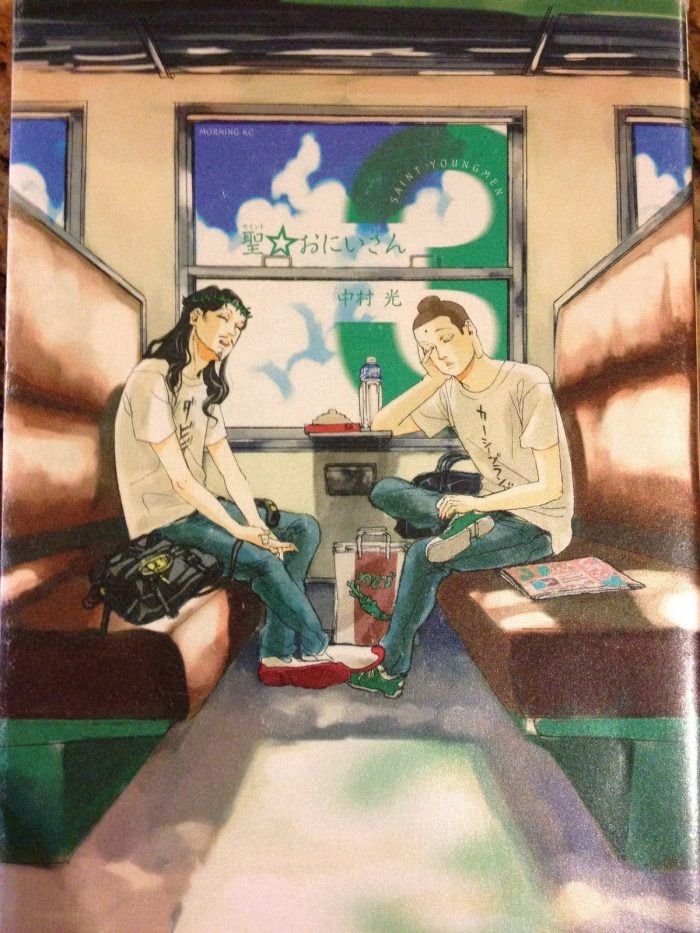In my mind, I’m calling myself names—bad ones.
Sweat is dripping down my face. It’s annoyingly salty and disgusting. My eyes burn. I can hardly see a thing.
Why am I doing this again?
I’m crawling my way uphill on my bike. I’m wearing my friend’s too-big bike shorts and too-small helmet. At least I managed to find my own socks and underwear.
The sun is burning without mercy.
And then there is an itch.
Right under the helmet, on the top of my skull on the right side, and out of reach.
It starts off innocently: a tiny, uncomfortable sensation of the skin. Irritating, but ignorable. Then it grows—into a prickly, sweaty, inaccessible disaster. I can’t scratch it because if I come to a full stop here, I’ll never be able to get back into business. Thus, I’m trying to endure the unbearable.
One
Around the 20th hairpin turn, it dawns on me. This is dukkha, the Buddhist term for unsatisfactoriness, pain, unhappiness, or, in the more popular translation, suffering.
According to the Buddha, dukkha is one of the three fundamental marks of human existence. Inevitably, we all encounter some sort of pain throughout our lives. Life doesn’t always work out the way we’ve hoped for. Sometimes it’s as insignificant as a sold-out ice-cream we’ve yearned for so badly, sometimes it’s getting fired from work, and sometimes it’s the major loss of a beloved person or animal.
None of us can ever avoid unhappiness fully. Right now, dukkha masquerades itself as an itch underneath my helmet. A minor incident, but highly annoying.
Thankfully, the Buddha didn’t just leave us hanging with this observation about the nature of life. He went on to explain that despite the unavoidability of dukkha, we have a choice:
Pain is inevitable, suffering is optional.
To illustrate his words, he used the parable of the two arrows:
When you get hit by an arrow, it hurts. That is dukkha, the pain that none of us is immune against. Now imagine getting hit by a second arrow, symbolizing our reaction to the initial pain. That arrow is our aversion against whatever troubling situation we’re encountering. Our struggle and fight against it. Our wanting things to be different than they are. That’s self-inflicted suffering.
The itching bike helmet is the first arrow, and my constant complaining the second. The more I focus on it, the worse it gets. The more I get aggravated about it, the bigger the deal it becomes. It’s like using a magnifying glass or an amplifier: the initial small itch gets blown up out of proportion.
Two
While I’m snailing away on my bike, I’m putting the teaching into practise. I start to draw my immediate attention away from the itch, and toward my burning thighs, my pumping heart, my labored breath, and the landscape. Remembering another fundamental Buddhist teaching, that everything is impermanent and always changing, I silently repeat a mantra to myself:
Everything changes, this too shall pass.
Of course, it still tingles, but the itch is less center stage now. I know it won’t last forever. With a little bit of a distance, I can watch the continuous ebb and flow of the sensation. The slight pauses in between. The change of location. Nothing is fixed permanently.
Three
When I arrive at the top of the mountain, I’ve almost forgotten about that annoying spot underneath my helmet and, as a pleasant side effect, about my burning legs and struggling lungs. Finally, I get to take off my protective headwear.
While I deliciously scratch the itch, I remember an old monk I met in Nepal. He told me how puzzled he was about the Western mindset of constantly being upset about seemingly everything. He never gets agitated about anything because there simply is no reason:
If you can’t change it, why be upset? If you can change it, why be upset?
Suffering is an undeniable, unavoidable truth of life. And over some of it, we have absolutely no control. There is nothing we can do about the rain pouring down on our parade. Nothing to put a hold on a terminal disease or reverse death. When our bosses or partners make up their minds to let us go, we must usually accept that.
It’s easy to puff up the frustration about our circumstances to an enormous degree. Much of our suffering is indeed caused by ourselves, our thoughts, our internal debates, and complaints. It’s hard work to not add to the initial heartbreaking or upsetting situation. To accept pain and grief without the extra drama, the self-inflicted torture. It takes courage and strength to let go of bargaining over lost battles. But it’s worth it.
Four
Some people deal with loss and pain more gracefully than others. They have my highest respect and admiration. One of those people is my mum. When I asked her about the key to handling hardships, she shared her favorite advice with me, the “Serenity Prayer” by the American theologian Reinhold Niebuh:
God, grant me the serenity to accept the things I cannot change,
Courage to change the things I can,
And wisdom to know the difference.
I believe most of us can find comfort in Niebuh’s beautiful words. Just like the old Buddhist monk’s, they catch the essence of handling dukkha with elegance and skill.
When I encounter irritation, disappointment, and pain in my own life, I try to vividly remember the Buddhist and Christian teachings I’ve received. It’s not always easy. But it has helped me to get less caught up in my self-produced drama.
~


 Share on bsky
Share on bsky





Read 1 comment and reply